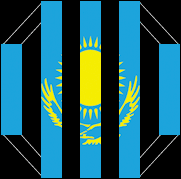Click Debate: Can neck-strengthening exercises help mitigate concussions in MMA?

Rosi Sexton made her professional mixed martial arts debut in 2002, more than a decade before the UFC added women to its roster and a year after Dana White and the Fertitta brothers purchased the promotion.
This was still a dark era in the growth of MMA, long before The Ultimate Fighter and national television. The long-term viability of the sport — if it was even referred to as such — was very much in question.
At that point, MMA was barely being regulated. There wasn’t much money in it and those who competed in it, did it out of love and passion for the art. The idea of concussions, traumatic brain injury (TBI) and chronic traumatic encephalopathy (CTE) were years away from being in the consciousness.
/cdn.vox-cdn.com/assets/2793351/022_Rosi_Sexton.jpg)
Rosi Sexton weights in for her fight with Alexis Davis at UFC 161.
“Back when I started, I don’t think it was anything that people gave much thought to,” Sexton told MMA Fighting. “You could be knocked out and back in training the week after. It’s not something I think people even really thought of. I would like to think that things have improved. Certainly, awareness of the issues has gotten better and I think certainly the better coaches out there — the more diligent coaches out there — have started to take this stuff on board and they’re more up to date on the protocols on what to do if an athlete is concussed and what not to do.”
It wasn’t until 2009 when CTE landed on people’s radars. The 2015 movie “Concussion,” which featured the work of Dr. Bennet Omalu, was an indictment on how the NFL dealt with head injuries. The NFL settled a lawsuit centered around this issue with former players for $1 billion.
There is still a great deal we don’t know about concussions, CTE (a brain disease which people used to call being “punch drunk”) and the relationship between the two of them. One thing that is for certain when it comes to MMA is that the sport cannot exist without blows to the head.
Sexton, a scientist, mathematician and licensed osteopath, has been working in her native England with combat sports athletes she retired from the cage in 2014. One of her focuses is neck-strengthening exercises, which studies show can have the affect of reducing concussions.
“Experientially, that makes perfect sense as a fighter,” Sexton said. “Because the more you can reduce the impact or reduce the movement of your head as a result of the impact, you have much less negative affect from that than you would when you’re not able to.”
The less the head moves, Sexton said, the less chance of a concussion. She said one of the doctors she works with England — her online presence is called Combat Sports Clinic — said the worst concussion he ever saw came from whiplash without any actual impact to the head.
A study published in 2014, annotated as “Collins, et al.,” found that for every one pound increase in neck strength, the odds of a concussion decreased by 5 percent. An experiment was conducted in 2010 and 2011 on 6,704 high-school athletes in soccer, basketball and lacrosse. Athletic trainers measured neck width, neck strength and rate of concussions.
‘Smaller mean neck circumference, smaller mean neck to head circumference ratio, and weaker mean overall neck strength were significantly associated with concussion.’ -Collins, et al
“Smaller mean neck circumference, smaller mean neck to head circumference ratio, and weaker mean overall neck strength were significantly associated with concussion,” the study reads.
Tad Seifert, a neurologist and member of the Kentucky Boxing and Wrestling Commission, said that boxers for years thought that neck strengthening and seeing a punch coming meant blows could be taken better. As it turns out, the science backs that up.
“In instances of the anticipated hit where an athlete sees the hit and/or collision coming and the neck can be contracted in anticipation, impact forces translated to the brain can be mitigated due to decreased head displacement, and subsequently, less movement of the brain within the skull,” Seifert wrote in an e-mail to MMA Fighting. “This acute acceleration/deceleration of the brain inside the skull is the key feature of cerebral concussions. Although the majority of concussions are due to a direct force to the head/neck region, a minority occur simply due to rapid movement of the head/neck (think whiplash in a car accident).”
Seifert said exercises like the chin tuck, rotational resistance, shoulder blade squeezes, neck harness and head lift can be effective in strengthening the neck.
“There are twenty-six muscles in the human neck,” he wrote. “All can be strengthened to varying degrees.”
Sexton does not think MMA fighters right now are doing enough to strengthen their necks and what they might be doing could be incorrect.
“By and large, I don’t think we are,” Sexton said. “I think it’s one of those situations where people do a few neck movements in the warmup and they suddenly go right from that to the wrestling with nothing in the middle.”
That’s where Sexton comes in. Neck strengthening is a part of her practice in The Midlands as an osteopath. She’s been working with athletes of all kinds, but of course, as a former MMA fighter, she has a special affinity for combat sports competitors.
“Fighters that I’ve been working with individually have been finding it really helpful, really successful,” Sexton said. “What they’ve been saying is that not only does it help with neck pain that they were getting to start with, but it also gives them that extra confidence that when they go into those situations — for example when they shoot that double leg — they’re not at the back of their mind worrying about their neck. If they’re not worried about their neck is going to get hurt when they shoot in, they’re much more able to do that confidently which obviously makes it much more likely it’s gonna be successful. So it’s actually been improving their performance as well as just reducing the neck pain. Which is what we’re looking at.”
Sexton, 40, said her plan is to begin providing courses and workshops, as well as other resources, online for combat sports athletes. She wants to build up a “library of online content” to help fighters across the globe.
While there isn’t a whole lot of research out there currently on concussions, CTE and combat sports, Sexton said she’d be interested in tackling these important issues.
“There are things that are unique to our sport that you don’t quite see the same way anywhere else,” Sexton said. “It would be great to see more research being done. And that’s something I’d love to work with people out there on.”
The world of MMA is way different now than it was in 2002. But it’s still a very dangerous sport, one that simply would not exist in its current state without blows to the head. That’s something Sexton understands well and an issue she has grappled with since retiring four years following a loss to Joanna Jedrzejczyk.
“It’s such a difficult one,” Sexton said. “I love mixed martial arts. I love combat sports. Of all the stuff that’s coming out at the moment, it’s worrying. There’s no way around that. You look at this and you can’t help but say there’s definitely a problem there. And how we square that circle, I don’t have any easy answers to that.
“What I do think is we need to make sure we’re putting good information out there, so people are making informed decisions about the risks involved. So people have access to that information.”













